Among all the rapid technological changes and constant evolution our always-connected society is experimenting, one thing prevails: trust. Regardless of the business model, sector, or technological resources, trust is the element that nurtures a business’ success. Digital trust allows users to carry out transactions in a digital environment they deem secure, safe, and ethical. It takes years for a business to earn its consumers’ trust. But it only takes a minute for it to vanish if there is a data breach. In a business reality that relies on connectivity, interoperability, and sensitive data sharing, safeguarding the collected data and eliminating ethical lapses have become crucial aspects toward building digital trust.
How digital trust conditions your healthcare business
Technological innovation is a double-edged sword that conditions almost every industry, including healthcare. While it does ensure seamless, effective, and cost-effective cooperation between all the involved parties (i.e. patients, doctors, supply chains, etc.), technological resources also bring about threats that require constant attention. Whether you are running a private hospital, a pharma, or any other type of healthcare-related type of organization, your customers share with you a huge amount of highly sensitive information such as medical records, biometric data, credit card details, real-time location, or social security numbers, just to name a few. And they expect their give-and-take relationship with your organization to be not only safe but also ethical.
According to research conducted by Accenture in 2020, 50% of the interviewed consumers agreed that a bad digital experience would negatively affect their entire experience with the respective healthcare provider.
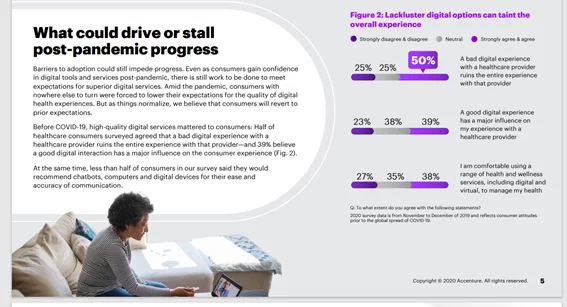
Given the richness of sensitive information they can obtain, cybercriminals turned healthcare into one of their favourite targets. Safety Detectives provides a list of the worst healthcare breaches of all time:
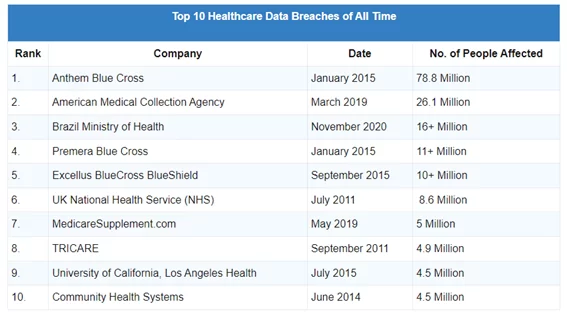
The breach that affected Anthem Blue Cross (a U.S. health insurance company) was, by far, the worst one. This phishing attack caused millions of customers and employees to lose sensitive data such as names, medical ID numbers, addresses, dates of birth, social security numbers, email addresses, and even employment details. Cyberattacks affect businesses at various levels, including reputational (damaged trust), financial (fines, compensations, extortions, etc.), and personal damages (emotional, mental, or even physical damage).
According to Statista, the average cost of a data breach in healthcare in 2021 amounted to $9.23 million.
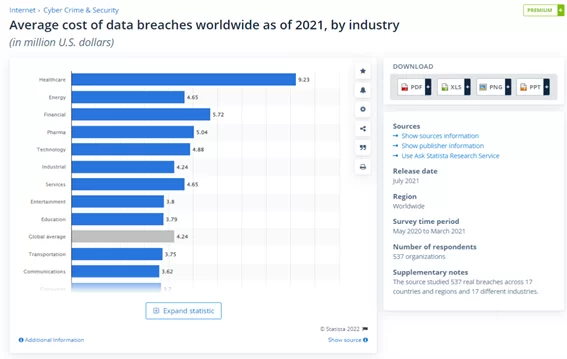
What’s even more worrisome is the fact that even wearables such as insulin pumps could be subject to hacking, resulting in patients’ deaths. In August 2020, IBM identified a cybersecurity vulnerability that may allow hackers to control insulin pumps remotely and alter dosages or manipulate medical device monitors.
Key considerations for improving digital trust in healthcare
Given the cybersecurity challenges the healthcare ecosystem has to face, protecting PHI (Protected Health Information) and PII (Personally Identifiable Information) data has become a top priority. The compliance requirements such as Health Information Portability & Accountability Act (HIPAA) or General Data Protection Regulation (GDPR) are geared toward enhancing digital security and require healthcare organizations to keep up with the evolving regulations. However, there are additional steps any healthcare business can make to ensure their customers’ trust is not broken.
Make sure not to sacrifice security to reach your business goals
More and more businesses are undergoing an intense digitalization process. However, digitalization also entails security risks. While investing in digital strategies will help your healthcare business thrive, make sure to also put in place cybersecurity plans and strategies to support your investment. As we have seen, security threats and digitalization are not mutually exclusive. Actually, it’s quite the opposite. As new technologies emerge and develop, so do threats. Hence, it is advisable to include security and privacy experts in your risk management plans.
Invest in data governance and transparency
It is crucial for healthcare businesses to transparently and safely use and store their customers’ data. Even the most loyal customer will not hesitate to break any type of relationship with a business that misuses or endangers sensitive information.
Steady cyber resilience assessment
Cyberattacks do not only negatively affect a business’ operations – causing financial losses – but also deteriorate customers’ trust. It is crucial for businesses to develop adequate strategies to handle cyberattacks and overcome them quickly.
Do your homework and try to outsmart the enemy
According to research conducted by Wandera, these are the most common cybersecurity threats that affect the healthcare industry:
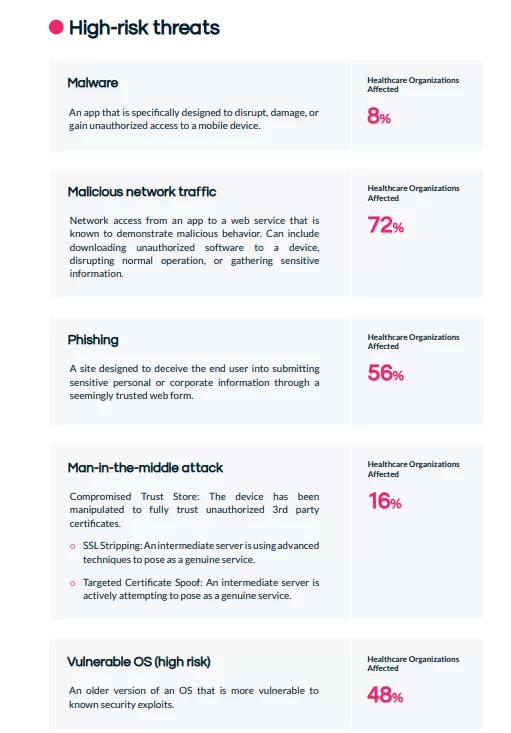
Knowing your potential enemy and your weaknesses allows you to put in place preventive plans. According to a report by Palo Alto Networks, numerous U.S. healthcare systems are running on unsupported operating systems and outdated software, thus leaving devices vulnerable to cyberattacks.
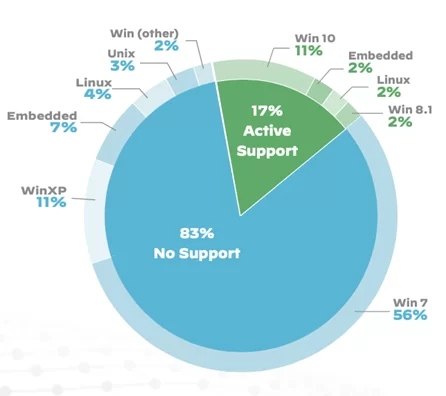
They point out that the vulnerability of IoT devices is mainly used to attack other systems on the network. These are the most frequent types of attacks:
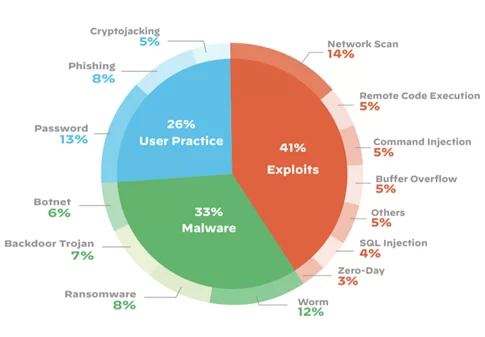
There are various factors that turn healthcare into a favourite target for cyberattacks:
- Private patient data is worth a lot of money on the black market
- Since data needs to be accessed remotely from various devices, there are more opportunities for attack
- Healthcare information is open and needs to be shareable
- Many healthcare organizations use outdated systems
3rd party risk assessment and compliance
Currently, the healthcare ecosystem is seamlessly interconnected, bringing together patients, doctors, hospitals, pharma providers, health insurance companies, authorities, etc. Since most breaches involve 3rd parties, it is crucial for healthcare organizations to put in place 3rd party risk assessment and compliance programs.
Wrap up
The healthcare digital ecosystem is experiencing an intense digitalization process boosted by the COVID-19 pandemic. However, when consumers don’t trust the way in which their data is being stored and used by a business, they don’t hesitate to walk away. Improving consumers’ trust in digital technologies via well-defined security strategies and ethical policies will allow healthcare organizations to thrive in a digital economic landscape prone to cyberattacks.









